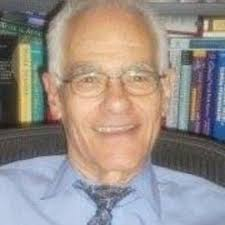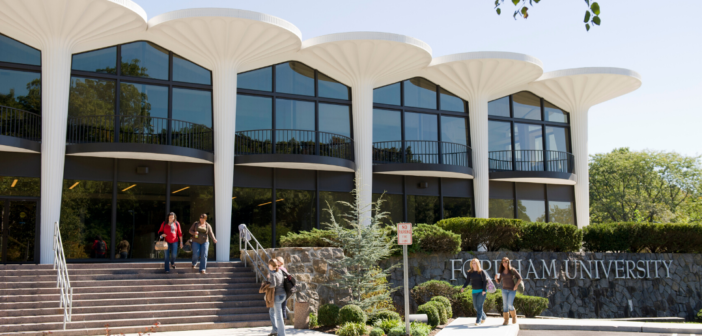Let’s go back a half century. The year is 1970. Richard Nixon is president. Paul McCartney announces the disbandment of The Beatles. Gas is 36 cents per gallon.

Photo courtesy of researchgate.net
At the Graduate School of Social Service, Jim Dumpson is head dean. He hires Robert Chazin, a man with ten years of social work practice experience under his belt, and who is just back in New York from teaching at San Francisco State (now San Francisco University).
Oh, and gas is 36 cents per gallon.
You heard that, right?
Chazin, who received his B.A. from the City University of New York, his M.S.W. from Columbia, and his D.S.W. from Case Western Reserve University, didn’t know he’d just signed a 50-year contract. And throughout his semicentennial at GSS, he saw four head deans, hundreds of faculty members, thousands of students, served as chair of the International Committee, and taught various advanced clinical courses. Not to mention, his research specialization in international social work took him across the world: The Ukraine, Belarus, Hong Kong, Vietnam, London, and various U.S. states, to name a few.
But on June 16, 2020, after a career spanning almost half of GSS’s school history, Dr. Robert Chazin bid farewell to the classroom and stepped into retirement.
In his announcement to GSS faculty and staff, Chazin stated COVID-19 has made him reflect on how “precious life is” and that “time is not promised to any of us.” He thanked the school for the opportunities it granted him, and the GSS community for its ongoing support. His retirement officially begins on July 31.
From the east and west coast of the U.S., to international work at Chernobyl and in Africa, Dr. Chazin made an enormous difference in the social work field and the world. I was lucky enough to sit down with him and discuss his career, motivations, and to celebrate his retirement.
The Start of a 50-year Career
Chazin got into social work, like so many others, because he wanted to help people. Friends were joining the field, and the influence of those close friends brought more interest. That, plus, Chazin said, his time spent in the army, serving the country.
“I was in for two years and there was a period of at least a few months when I had a lot of contact with buddies who were Latino – primarily Puerto Rican – also African American,” he said. “I really got a sense of oppression, heard about it firsthand from those I was intimately working with, because of being in the service.”
Even at the beginning of his social work career, Chazin spent a lot of time traveling. He worked in Florida, California, and got his doctorate in Cleveland, but somehow, he said, he kept coming back to New York.
“I guess New York is the magnet and I guess I was homesick,” he said. “At that time, my wife and I wanted to get back to New York, so the question was, what would I be doing?”
After deciding he’d remain in the academic setting, Chazin searched for the right fit, considering other northeast universities before getting to Fordham. Upon meeting Jim Dumpson and hearing all the good opinions from even those outside the Fordham community, Chazin knew it would be the place for him.
Not only is Fordham in his home state, but Chazin said The University’s openness to secularity also brought him on board. Although Fordham’s tradition is steeped in the Jesuit religion, its welcoming attitude to those not so strictly involved (aka its love for the whole person, cura personalis) made Chazin’s decision that much easier.
“Those were big considerations,” he said. “It was the New York area and wanting to get back, and it was what was happening at Fordham – and particularly the school of social work – in terms of opening up.”
International Social Work
Chazin’s international experience started in the 1990s teaching and representing Fordham in Vietnam, where he helped create a school of social work program in the southern part of the country. He taught jointly with his wife, with whom he then traveled the country.
From there, Chazin set his sights on the Ukraine. For five years, he and colleague Meredith Hanson went to and from Chernobyl, working with a medical team following the Chernobyl nuclear disaster in 1986.
“We had a contract working with the kids and families in Chernobyl,” he said. “The doctors I was working with were involved with setting up an infrastructure within the country, to identify and treat kids suffering from cancer as a result from the Chernobyl disaster.”
Then, back to Vietnam – northern, this time – to help set up another school of social work. Chazin additionally taught in Hong Kong, Beijing, and London, and has presented in Russia and Lithuania, while also traveling Scandinavia in his spare time.
But my personal favorite? Chazin provided consult services to an agency in Africa, and got to travel the continent afterward. And if that wasn’t enough, he even saw Africa’s Great Migration – the largest terrestrial mammal migration in the world.
“At moments it made me more humble, to realize how much knowledge there is in the world, outside of the U.S.,” Chazin said. “It certainly prompted me to keep going to training programs and studying with others in the field – and that I did throughout my career.”
Looking Ahead into Retirement
Chazin isn’t going to melt away into retirement; the social work world won’t get rid of him that easily. He knows he still has a lot to give.
For years, Chazin kept a part-time clinical practice to supplement his teaching, keeping his preaching where he practiced. He brought specific strategies, interventions, and techniques into the classroom that weren’t just out of some textbook, but were used in real time for real-life situations.
“I have accumulated, by my standards, an enormous amount of knowledge regarding clinical practice,” he said. “And I have this body of knowledge, and one of the hardest things about retirement is taking this with me and not being able to contribute it back.”
So, he wants to spread that knowledge and help his community – even in retirement. He wants to stay engaged. This is especially true, Chazin said, in agencies with lower budgets that may not be able to afford extra training. He will give it all back, free of charge.
“I’ve had thousands of students over 50 years and many have come over to me and said how much they’ve learned from me about actual practice, about what you actually do with clients,” he said. “That’s the contribution I can make and I’d like to make it somewhere.”
Until then, Chazin said, he’s spending time tending to his plants and flowers on a balcony on Roosevelt Island. The magnet kept him here for good this time.



